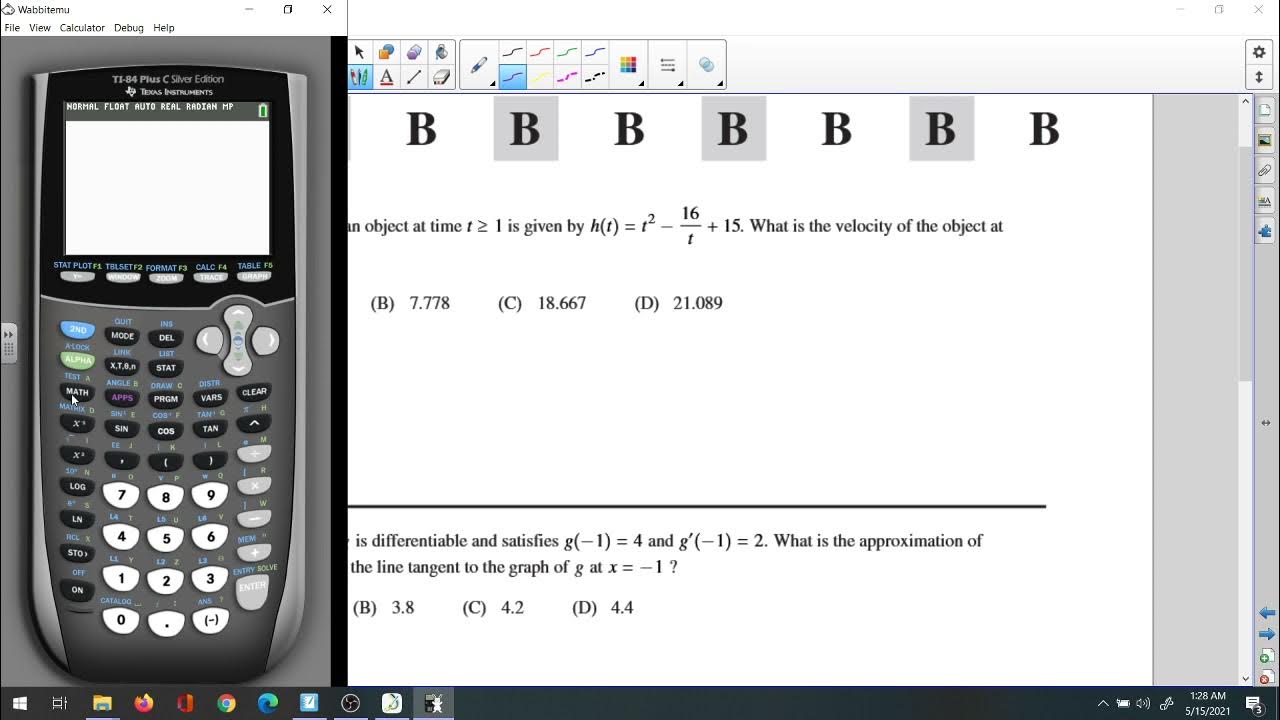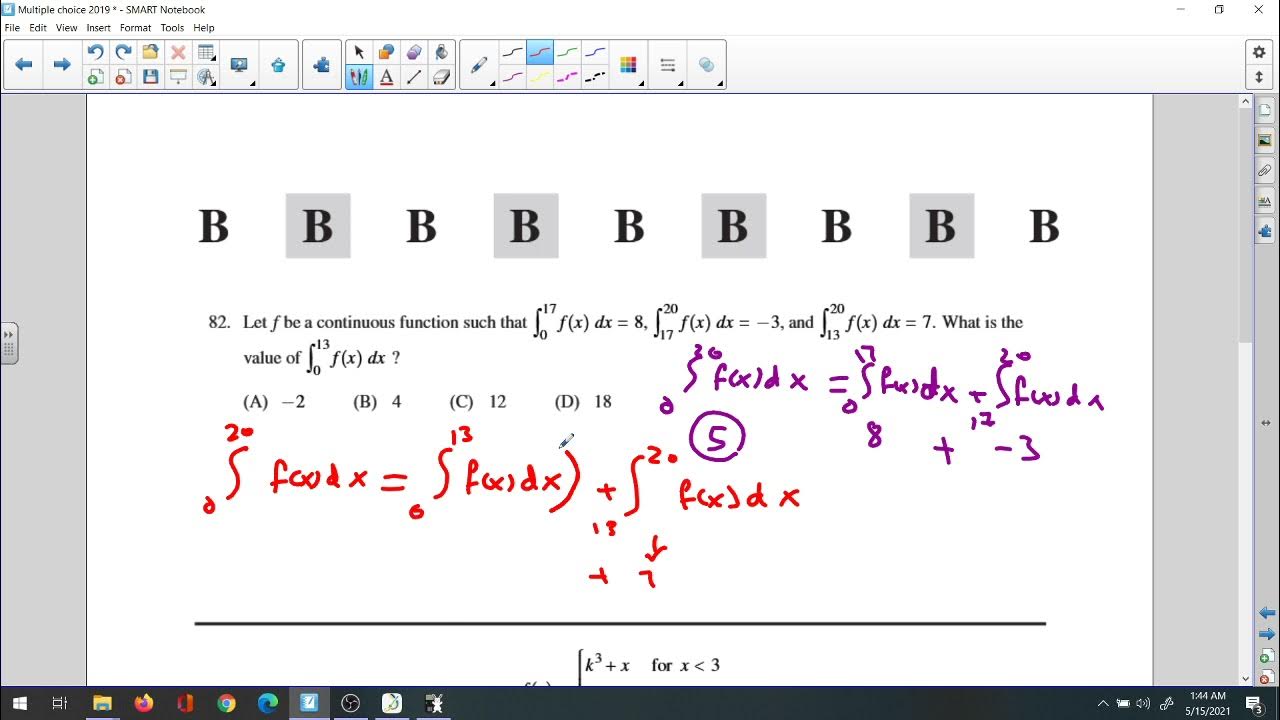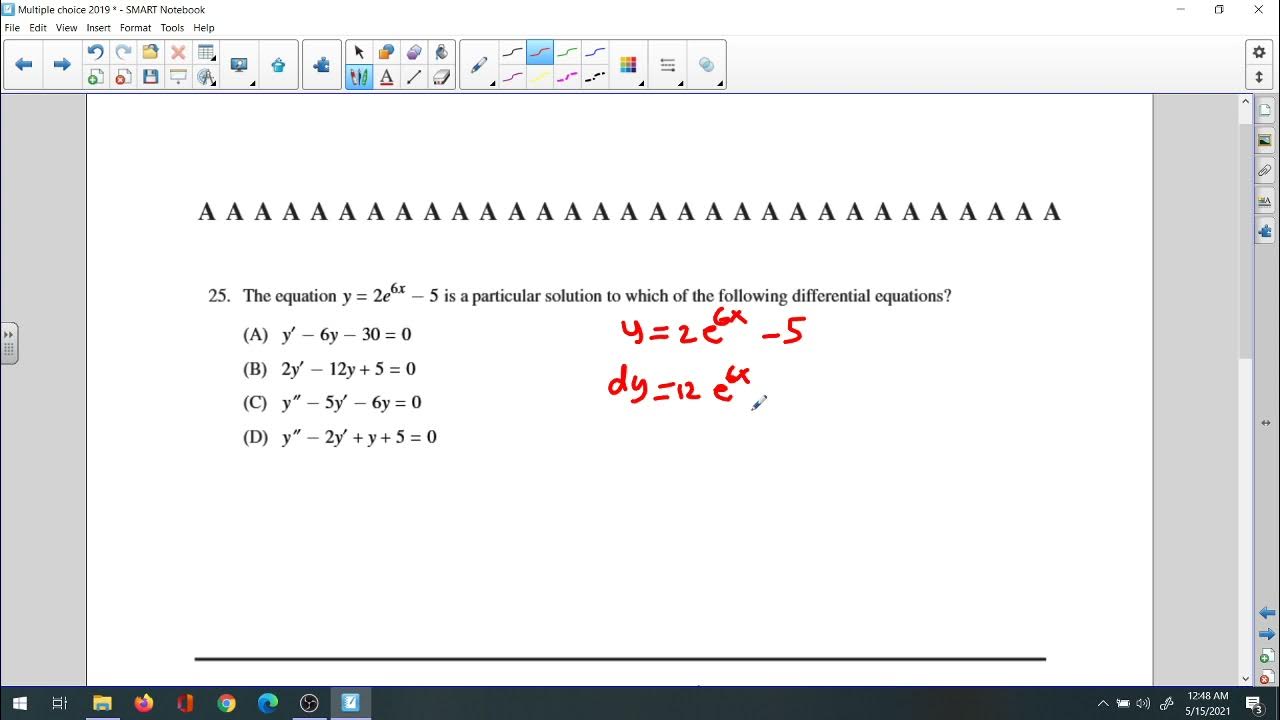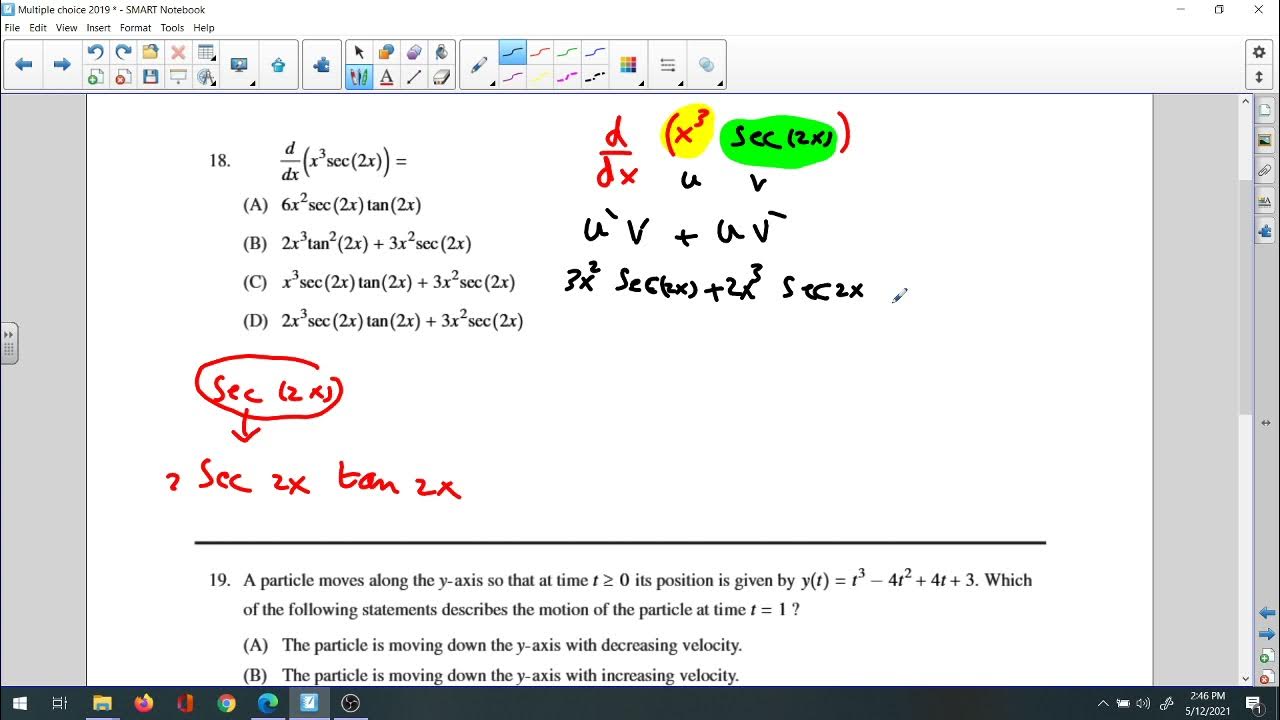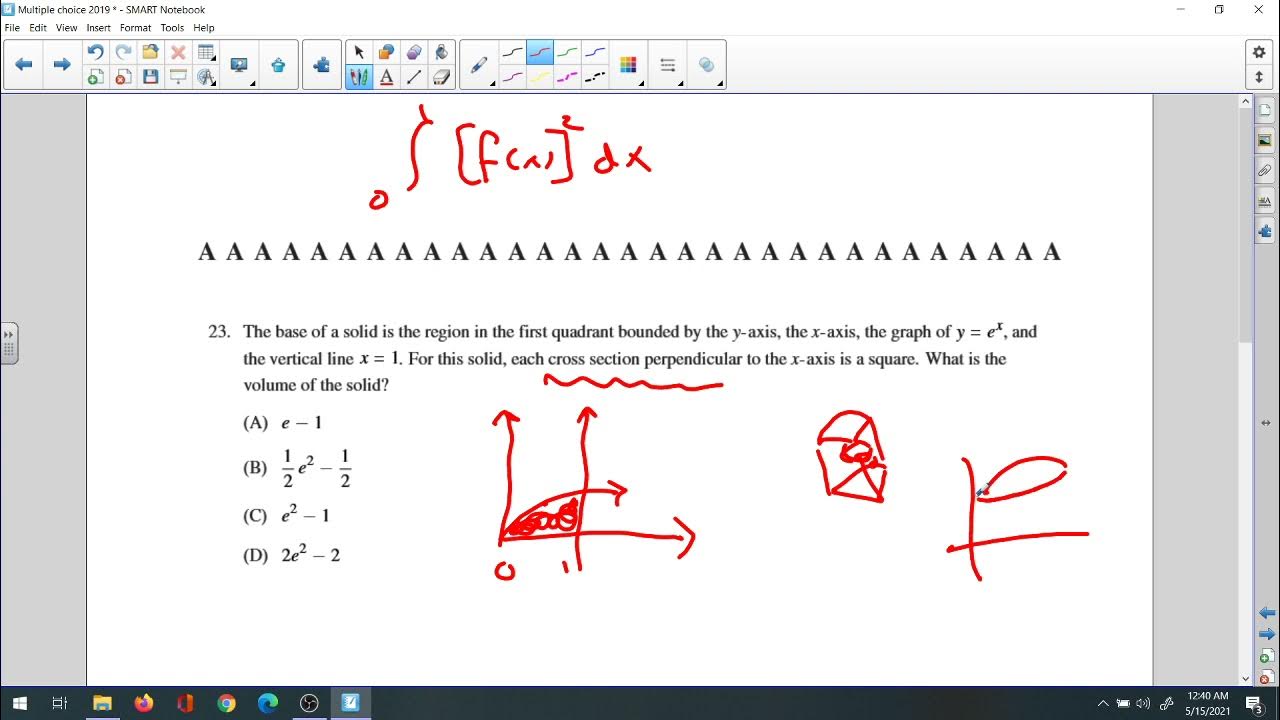2019 Multiple choices 3,4
TLDRThis video script offers a comprehensive review of the 2019 AP Calculus Multiple Choice questions, dissecting each problem methodically to enhance understanding. It provides a clear pathway for students preparing for the AP exam, emphasizing the importance of practice and conceptual clarity. The script is a valuable resource for those seeking to master calculus concepts and improve their problem-solving skills.
Takeaways
- 📘 Understand the Fundamental Theorem of Calculus for solving integrals.
- 📈 Master techniques for finding derivatives of complex functions.
- 🔍 Familiarize yourself with different types of limits and their properties.
- 📊 Learn to apply the Chain Rule in differentiation problems.
- 🧮 Know how to solve optimization problems using calculus principles.
- 📉 Practice interpreting graphs of functions and their derivatives.
- 🔢 Recognize and solve problems involving related rates.
- 🔗 Understand the applications of the Mean Value Theorem.
- 📏 Learn to compute areas under curves and between curves using integrals.
- 🗂 Practice multiple-choice strategies to efficiently tackle calculus problems.
Q & A
What is the main focus of the AP Calculus Multiple Choice problems from 2019?
-The main focus is on the comprehensive understanding of calculus concepts, including limits, derivatives, integrals, and applications of these concepts.
How many multiple-choice questions were there in the 2019 AP Calculus exam?
-There were a total of 45 multiple-choice questions in the 2019 AP Calculus exam.
What is the significance of the multiple-choice section in the AP Calculus exam?
-The multiple-choice section tests students' knowledge and understanding of calculus principles and their ability to apply these principles to solve problems.
Can you provide an example of a question that tests the concept of limits from the 2019 exam?
-An example could be: 'What is the limit of the function f(x) = (x^2 - 1) / (x - 1) as x approaches 1?' The answer would be 2, as the function simplifies to x + 1.
What is the role of derivatives in AP Calculus?
-Derivatives are used to find the rate of change of a function, its slope at a particular point, and to solve optimization problems.
How are integrals typically tested in the AP Calculus exam?
-Integrals are tested through questions that require students to find the area under a curve, the volume of solids, and to solve problems involving accumulation.
What are some common mistakes students make when solving calculus problems?
-Common mistakes include not simplifying expressions before taking derivatives or integrals, misapplying the rules of calculus, and not checking the domain of the function.
How can students prepare for the AP Calculus exam?
-Students should review all calculus concepts, practice solving a variety of problems, and familiarize themselves with the format of the exam.
What is the significance of the AP Calculus exam for college applications?
-A high score on the AP Calculus exam can demonstrate a student's mathematical proficiency and may lead to college credit or advanced placement in college-level math courses.
Can you explain the concept of the Mean Value Theorem as it might appear in the exam?
-The Mean Value Theorem states that if a function is continuous on a closed interval [a, b] and differentiable on the open interval (a, b), then there exists at least one point c in (a, b) where the derivative of the function equals the average rate of change over the interval.
What strategies can help students manage their time effectively during the AP Calculus exam?
-Students should allocate time wisely, read each question carefully, use process of elimination for multiple-choice questions, and leave time to review their answers.
Outlines
📚 AP Calculus 2019 Review
This paragraph focuses on reviewing multiple-choice problems from the 2019 AP Calculus exam. It suggests a detailed analysis of the questions and their solutions, potentially highlighting common mistakes and strategies for tackling similar problems in the future.
Mindmap
Keywords
💡AP Calculus
💡Multiple Choice
💡Limits
💡Derivatives
💡Integrals
💡Continuity
💡Rate of Change
💡Function
💡Graph
💡Test Preparation
💡Problem Solving
Highlights
Emphasis on foundational concepts like limits and derivatives
Innovative problem-solving methods involving integrals
Detailed explanation of the Fundamental Theorem of Calculus
Importance of understanding graphical interpretations
Techniques for solving differential equations
Application of calculus in real-world problems
Strategies for optimizing problem-solving time
Review of common pitfalls and how to avoid them
Step-by-step breakdown of complex problems
Integration techniques and their practical applications
Understanding and applying the chain rule
Methods for approximating areas under curves
Importance of proper notation and its impact on solutions
Tips for multiple-choice strategies specific to calculus
Use of technology in solving calculus problems
Transcripts
5.0 / 5 (0 votes)
Thanks for rating:
